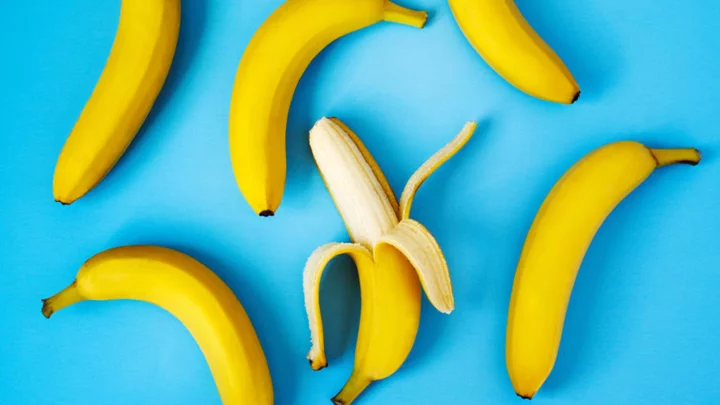If you’ve ever eaten banana-flavored treats like jellybeans, a Laffy Taffy, or pudding, you’ve probably noticed they taste similar to the fruit—and yet, strangely, are also nothing like the bananas we’re familiar with. Here’s the truth about artificial banana flavoring and why it doesn’t taste much like America’s favorite fruit.
The Great Gros Michel Banana
One oft-repeated misconception about the origins of artificial banana flavoring involves the once-popular Gros Michel, or “Big Mike,” variety of banana. Until the 1950s, the Gros Michel was the most common type of banana and was widely sold in many North American supermarkets. It was bright yellow when ripe, like most other varieties of the fruit, but it had a firmer texture and a sweeter flavor.
The popularity of the Gros Michel banana remained strong until the valuable crops were hit by a fungus called Fusarium oxysporum, also known as Panama disease. After the Gros Michel farms were nearly all wiped out, producers replaced the variety with one that was more resilient to the fungus: the Cavendish banana, which is now the most common type available in supermarkets today.
The Cavendish has a particular taste—one that doesn’t quite resemble artificial banana flavoring. Because of this confusing discrepancy, rumors and assumptions continue to circulate that artificial banana flavoring must actually be based on the flavor of the Gros Michel. In truth, it’s not a matter of banana varieties at all. The answer to the artificial banana flavor mystery comes down to simple chemistry.
What is artificial banana flavoring?
Artificial banana flavor is made up of a single chemical compound called isoamyl acetate, which is naturally found in all bananas. All fruit aromas and flavors are made up of hundreds of different compounds. To achieve good-tasting artificial fruit flavors, food scientists have to isolate and combine several of the fruit’s natural occurring compounds. Synthesizing or singling out one compound is easier and less expensive to do—even if it results in a monotone, single-note flavor like that found in artificial banana.
The next time you tuck into your favorite banana pudding or chomp on a banana candy, you can thank science, not the Gros Michel, for the pleasantly simple flavor profile. And if you want to see how the artificial flavor compares to the popular banana of the past, you can find some specialty vendors selling the now-rare Gros Michel online.
This article was originally published on www.mentalfloss.com as Why Artificial Banana Flavor Doesn’t Quite Taste Like Bananas.

